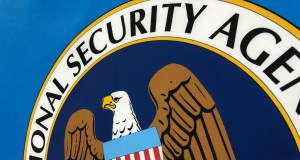The National Security Agency on Wednesday afternoon declassified three U.S. court opinions that reveal the agency inadvertently collected 56,000 Internet communications not related to terrorism between 2008 and 2011, when it informed the court of the improper collection.
The documents were published on the intelligence community’s new Tumblr page, IC on the Record, which President Barack Obama announced in his Aug. 9 press conference and the Office of the Director of National Intelligence launched Wednesday. The memos — sent to the Foreign Intelligence Surveillance Court in 2011 and 2012 — show the government was previously unaware of any misplaced communications gathering and that NSA attributed the mistakes to technical errors.
A senior NSA official told reporters Congress “clearly knew there would be inadvertent collection of U.S. person communications” when it authorized the surveillance programs in 2008 under Section 702 of the Patriot Act.
The particular program is “upstream collection,” which essentially collects screenshots of an entire inbox of a foreign email address being tracked. As a result, large swaths of email addresses — possibly domestic — are incidentally gathered. The screenshot method was one of necessity, NSA officials told reporters.
“For technological reasons, NSA was not capable of breaking those down, and still is not capable, of breaking those down into their individual components,” said an NSA official. “So if you had a situation where one of those emails may have referenced your targeted email in the subject line, you’d nonetheless collect the whole inbox list.”
This type of collection comprises roughly 10 percent of NSA’s total electronic communication gathering, which is more than 250 million electronic communications annually, according to one of the 2011 documents.
While NSA said this process was unavoidable and notifying the FISA court showed “effective self-policing,” the court opinion took a harsher stance. Written by U.S. District Judge John Bates, then the FISA court’s chief judge, the court opinion said NSA’s disclosure “fundamentally alters the court’s understanding of the scope of the collection.” It called for a “careful re-examination of many of the assessments and presumptions underlying prior approvals.”
And the new information dump has already led to calls from lawmakers to convene hearings and an oversight committee. Sen. Bob Corker, R-Tenn., asked the White House to send NSA Director Keith Alexander before the entire Senate to discuss the programs. Sen. Richard Blumenthal, D-Conn., reiterated his call — introduced as legislation earlier this month — for a special advocate to oversee NSA’s surveillance programs.
“Apparently, despite the fact that the FISA court had found serious misrepresentations by the government on at least two prior occasions, it failed to provide adequate safeguards when authorizing another round of government surveillance,” Blumenthal said in a statement. “The result was surveillance that went well beyond the bounds of the law and the Fourth Amendment.”
The new website, IC on the Record, will continue to declassify more documents in the coming days, “designed to provide immediate, ongoing and direct access to factual information related to the lawful foreign surveillance activities carried out by the U.S. intelligence community,” according to a post Wednesday.
The forthcoming documents include: intelligence community statements and letters to Congress, a semiannual Section 702 compliance assessment and a white paper on Section 702. The documents, seven in total, range from October 2011 to August 2013.






